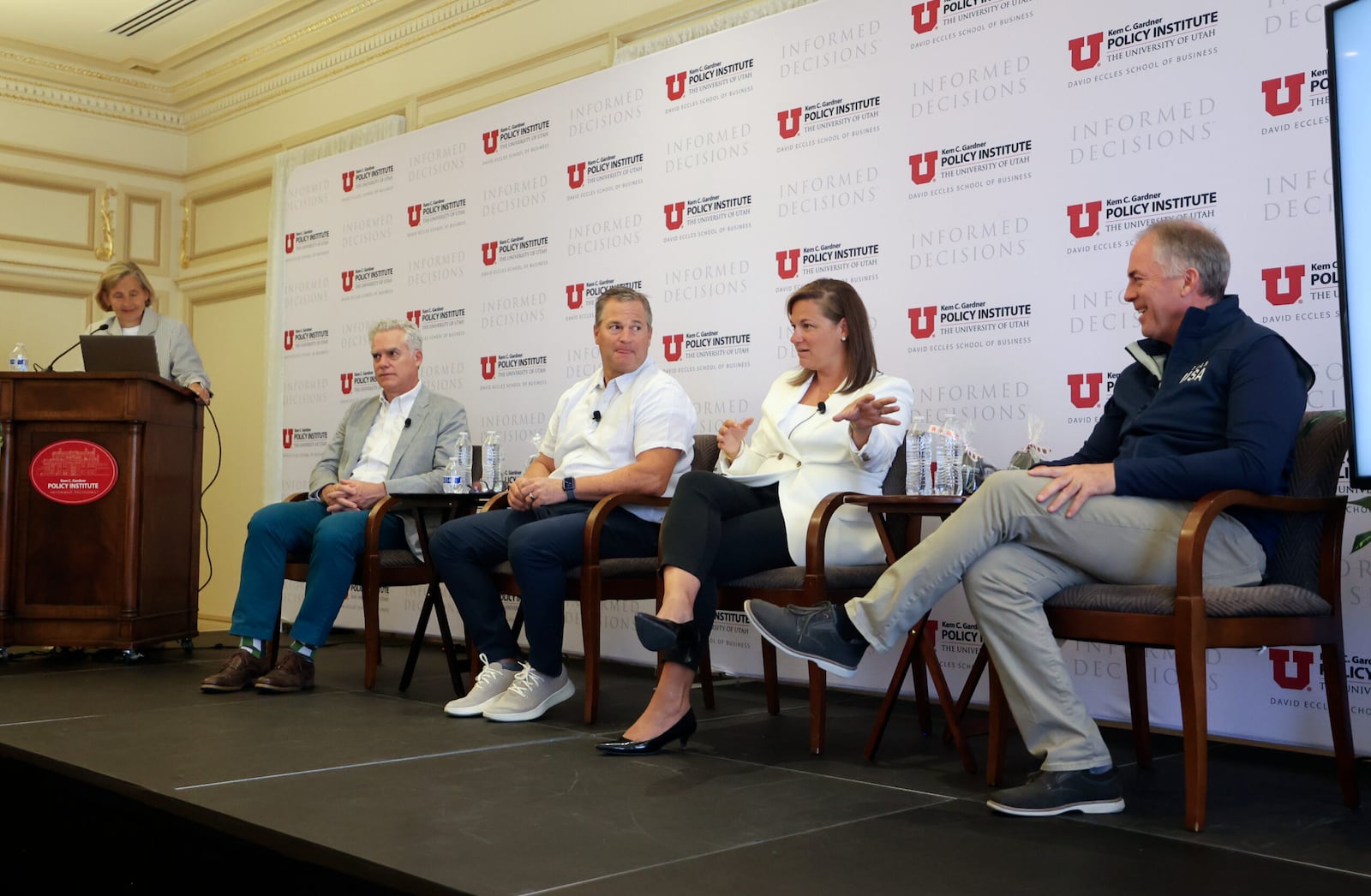, will come major economic dividends.
How major? According to the Policy Institute’s report, the Games are projected to generate almost $3.9 billion in gross domestic product (GDP) and a cumulative $6.6 billion output.
“You think, if you host a Super Bowl, that would be a big deal. Then you think about hosting a Super Bowl every day for seventeen days. That gives you some sense of the magnitude of the Games,” says Natalie Gochnour, director of the Kem C. Gardner Policy Institute.
The global community coming to town would mean a substantial economic influx. Supporting the event will involve new jobs — as many as 42,000 job-years of employment, as measured by the Policy Institute, in which a job that lasts one year constitutes one job-year. “We do it that way, obviously, because it’s only a 17-day event,” Gochnour says. “You have a massive employment impact in those days.”
Gochnour describes that impact as a “crescendo effect.” The first few years leading up to the event will involve minimal spending by the state. Then, “By the time you get to 2032, and particularly in 2033 and 2034 … it takes off,” Gochnour says. “These jobs [are] dropping billions of dollars more into the Utah economy. You have all of the jobs associated with putting on the games — more temporary jobs — and then you have more serious jobs, whether it’s legal services, accounting services or IT services, that are year-round in 2033 and 2034. And then you have jobs that come from an expanded visitor economy in that year.”What does that mean for the Utah business community? For one thing, it means a great deal of certainty on the horizon. “We’ve been given this gift; we know 10 years in advance we’re going to be hosting an Olympic Games,” Gochnour says. “That’s longer than the typical time frame. It gives us many years to prepare. If you’re a business leader, not only do you have this milestone you can plan for, but we can use it as a community to get better in every way.”
Gochnour’s vision of community improvement is pretty expansive: transportation, air quality, hospitality services, restaurants, hotels and ski facilities. “The notion that we have … 10 years of planning for when we’re going to host the world — that’s a powerful motivator. It creates incredible pressure to do good in the community.”
Of course, “You don’t host the Olympics because of the jobs impact,” Gochnour says. The Olympics aren’t about what you get as a host but what you can offer to the world.
“The 2002 Games really were about putting Utah on the map. But that happened. It’s done,” she continues. “The 2034 Games have a whole different feel or message. It’s an opportunity for Utah to serve the global community. In 2034, who knows what the world is going to be like? But we know that in this state and this city, we can do much to unify the world. These Games are truly more about giving than taking. I think that’s becoming a dominant theme for 2034.”

